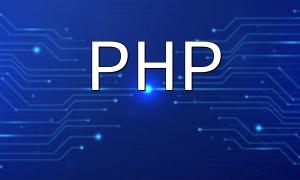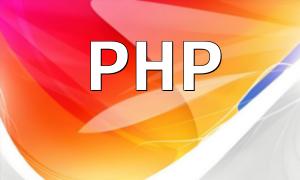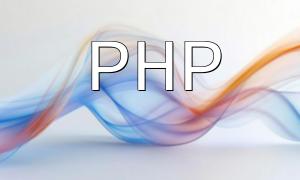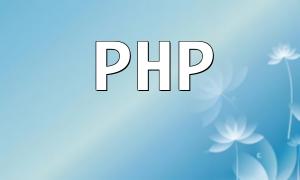With the rapid development of internet technology, PHP has become one of the most widely used backend development languages worldwide. As the latest version, PHP 8 has introduced significant performance improvements and many new features, offering developers more efficient ways to write and maintain code. This article will dive into the low-level principles of PHP 8 and explore its new features to help developers enhance code quality.
PHP 8 has made some significant improvements in its low-level development, with the introduction of the JIT compiler being the most notable.
JIT Compiler: PHP 8 introduces Just-In-Time (JIT) compilation, which allows PHP to dynamically compile code into machine code during execution. This compilation method greatly improves the performance of PHP scripts, especially in computationally intensive tasks, making PHP 8's performance comparable to that of compiled languages. The introduction of JIT opens up more opportunities for optimization.
Improved Type System: PHP 8 further strengthens its type system, supporting more precise type definitions and annotations. With the introduction of Union Types and Mixed Types, developers can define variable type ranges more clearly. PHP 8 also introduces static return types, helping developers catch potential type errors early and improving code maintainability and reliability.
PHP 8 also brings several innovative new features that make development more flexible and efficient.
Powerful Match Expression: PHP 8 introduces a powerful match expression, which replaces the traditional switch statement. Compared to switch statements, the match expression is more intuitive and supports more complex condition checking, enhancing both code readability and conciseness.
Improved Dynamic Property Access: In previous PHP versions, dynamic property access often led to errors, but PHP 8 introduces the Nullsafe Operator, allowing safe access to dynamic properties. With this operator, developers no longer need to check whether a property exists before accessing it, improving both the reliability and security of the code.
Improved Exception Handling: PHP 8 improves exception handling by adding the new Throwable interface, which is implemented by both exceptions and errors. This enhancement allows developers to handle exceptions more flexibly and catch runtime errors, improving debugging and error-handling capabilities.
Whether you're using PHP 8 or other versions, writing high-quality code is always the goal of developers. Here are some suggestions for improving code quality:
Follow Best Practices: Writing modular, clear, and loosely-coupled code, adhering to consistent naming conventions and commenting practices, conducting code reviews, and performing unit testing are all effective ways to improve code quality.
Use Static Analysis Tools: PHP 8 offers better support for static analysis tools such as PHPStan and Psalm. These tools help developers identify potential errors and performance issues during development, ultimately improving code quality.
Continuous Learning and Improvement: As PHP continues to evolve, developers should maintain a learning mindset, keep up with the latest versions and new features, and apply them in real-world projects. This ongoing learning and improvement process will ensure that the code remains of high quality.
As the latest version of PHP, PHP 8 introduces many new features and low-level improvements, such as JIT compilation, an improved type system, powerful match expressions, and safer exception handling. These enhancements greatly improve PHP's performance and development efficiency, enabling developers to write higher-quality code. By following coding best practices, utilizing static analysis tools, and continuously learning, developers can improve code maintainability and readability, providing strong support for PHP application development.









